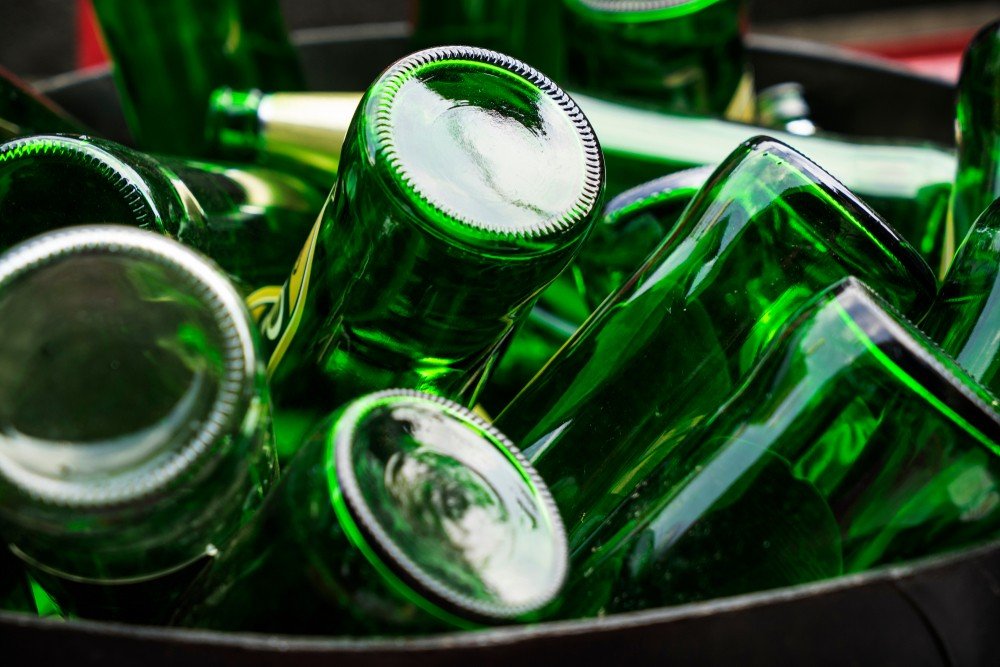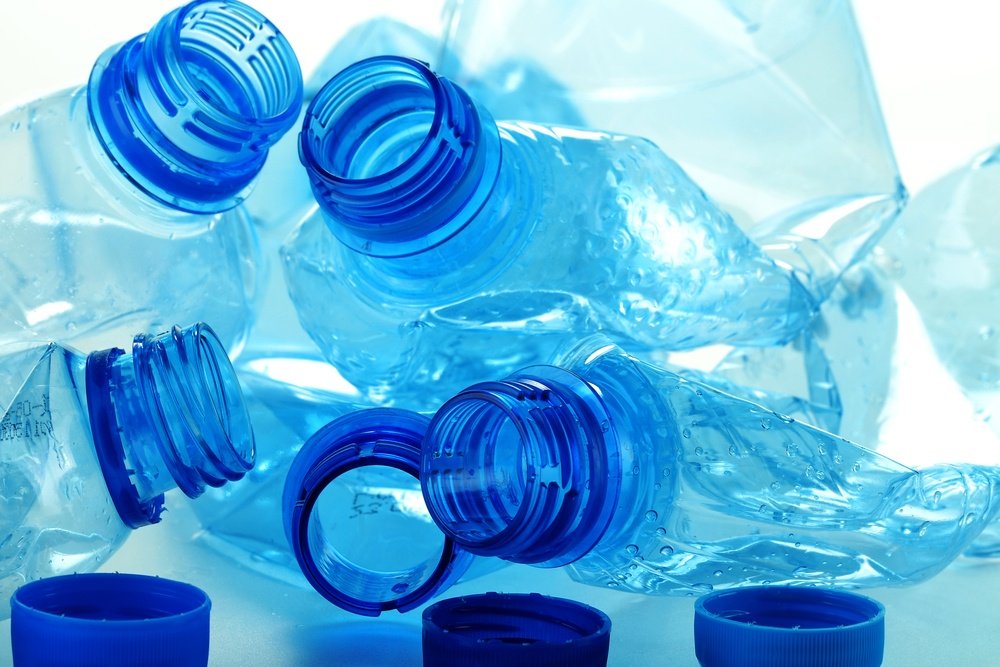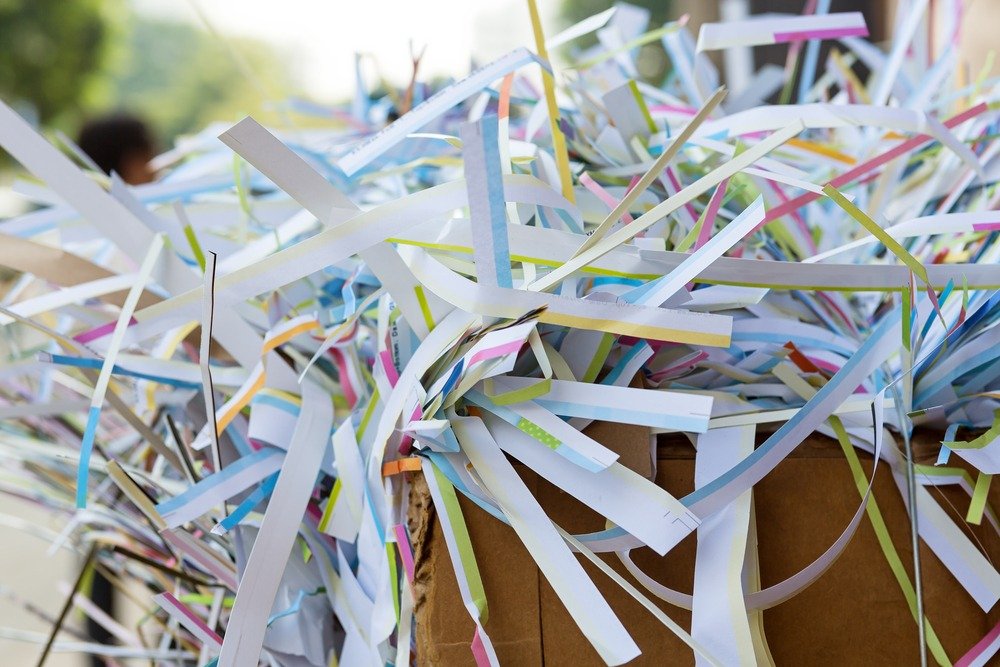Does Recycling Save Energy? The Truth About Recycling Plastic and Paper Products
Reduce, reuse, recycle. The three “Rs” have been burned into our brains for years as the mantra to keep our landfills free of materials that can be—and should be—recycled into another life. But while we know that recycling is better for our landfills, how much energy does it save?
Let’s break down all the facts about the real benefits of recycling paper, plastic and glass (spoiler: you’ll need to keep those colorful bins!)

Glass
Glass is Pretty Much Immortal
There is no end to how many times glass can be recycled! According to The Balance, “very little waste is generated in the glass recycling and manufacturing process.”
Breweries Are Recycling, Too!
Drink a beer, return the bottle! An article in the Pittsburgh Post-Gazette highlighted how Straub Brewery has initiated a beer recycling program. The article notes that a deposit is paid on a case of beer, and the empty bottles are returned. Instead of tossing the glass, the bottles will be washed and used again! If this sounds like something out of the 1950s or 60s, it is! Milk bottles once had the same return process!
Recycled Glass is a Little Like Carbon
Every living thing is made up of carbon, and, apparently, every glass item is composed of some small percentage of recycled glass. According to the Glass Packaging Institute, “recycled glass is always part of the recipe for glass.”
Recycled Glass Leads to Less Energy Use
GPI also notes that when recycled glass is used to make other glass, less energy is used for the furnace. So the more recycled glass is used…more energy is saved.
But Not All Glass Can Be Part of the Mix.
Not all glass is equal. GPI notes that Pyrex, crystal, and windows need to be sorted out. If you are finished with that fine china or crystal, donate it to a charity shop for another life.
Sort the Colors
If you’re recycling your glass bottles and containers, keep the colors separate. Sorting out the hues makes everyone’s job easier.
Recycle a Ton, Save a Ton
GPI states that every ton of recycled glass saves even more of our natural resources!

Plastic
Those plastic water bottles might have already had an earlier life elsewhere. Depending on the brand you drink, those bottles could be made of recycled material. But don’t toss those bottles in the trash; recycle them to continue the life cycle.
Too Many People Aren’t Recycling!
According to National Geographic, “A whopping 91% of plastic isn’t recycled.” So, yes, less than 10 percent of all that plastic gets tossed into the landfill, where it waits to decompose. So will it decompose?
Plastic Will Sit for Centuries
If you think that plastic bottle will eventually break down, you’re right. But not in your lifetime. Or your child’s lifetime or during their children’s lifetime. But eventually—after hundreds of years–it might finally start to decompose. According to Utah Recycles, those bottles won’t become one with the Earth FOR 1,000 YEARS!
Plastic: A Journey Around the World…Four Times!
How many trips around the Earth can all that tossed out plastic travel? Four. Utah Recycles notes that every year we throw away enough plastic to “circle the Earth four times.”
Recycling Plastic Saves a LOT of Energy
So how much energy does recycling plastic really save? For every ton we recycle, we could conserve 5,774 kWh of electricity.
But It Also Saves Landfill Space
One bottle takes up space. But imagine thousands. Or millions. Add in plastic bags, utensils, cups, lids. The list just goes on. If we recycle a ton of plastic, 30 cubic yards are freed up to store trash that actually will decompose. Not just sit for centuries. So don’t toss it…recycle it!
So What Do You Save for Recycling?
If you’re interested in saving electricity, landfill space, and grow a greener conscience, then start collecting all that plastic. Here’s what you can recycle: every plastic bottle (don’t even think about it…recycle each one!), yogurt containers, butter containers, sour cream, ketchup bottles (salad dressing bottles, too), bottle caps (to plastic bottles), plastic grocery bags (these can be recycled at stores), milk jugs, bottles for cleaners (like detergent) and shampoo bottles, too! There is so much in your home that you can save from littering our landfills. So before you toss it, think about if it can be recycled.

Paper
Paper is one of the easiest materials to recycle. And the best reason to recycle paper is to save trees! We cut down more trees to make paper, so instead, recycle the paper and conserve the greenery!
So How Many Trees Will You Save?
The Recycling Bin notes that giving a ton of paper another life through recycling will save the lives of 17 trees! And those trees will go on to infuse the world with wonderful oxygen! And maybe even some fruit!
But Recycling Paper Saves Energy, Too!
Many of us think about our energy consumption in the price of electricity or gasoline. A ton of paper is a lot, but recycling that much enables us to conserve enough energy to equal 165 gallons of gasoline.
We Use Tons of Paper A Year…Literally
Think about your everyday habits. We use paper in the bathroom. In the kitchen. Our bills are paper. We read magazines that are…paper. We print on paper. Receipts? Those are paper, too! Then we have wrappers. And wrapping paper. So much paper, and so many dead trees. According to Waste-Free Mail: “Every year, Americans use more than 90 million short tons of paper and paperboard. That’s an average of 700 pounds of paper products per person each year.”
So How Can You Conserve and Recycle?
Paper needs to be recycled. And, of course, it should be separated from plastics and glass. Color code your recycling containers to help track your efforts and your waste. But beyond recycling, you also can reduce your paper use. Opt for paperless billing. Use sponges or cloths to clean the house instead of paper towels. Hand towels should replace paper in bathrooms, too. Often, your favorite magazine is available in digital format. Of course, opt for recycled paper products in lieu of traditional. Then keep the cycle going!
Recycling is important for the environment, but recycling efforts do more than reduce landfill waste. When we recycle, we also help conserve precious energy and resources. When we cut our paper use, we save trees and those trees remove carbon dioxide from the atmosphere and replace it with oxygen. Reduce, reuse, recycle isn’t just a mantra or a guideline, it’s a way of life. And if we all abide by the 3 Rs, our planet will be a much better—and greener—home for future generations.


